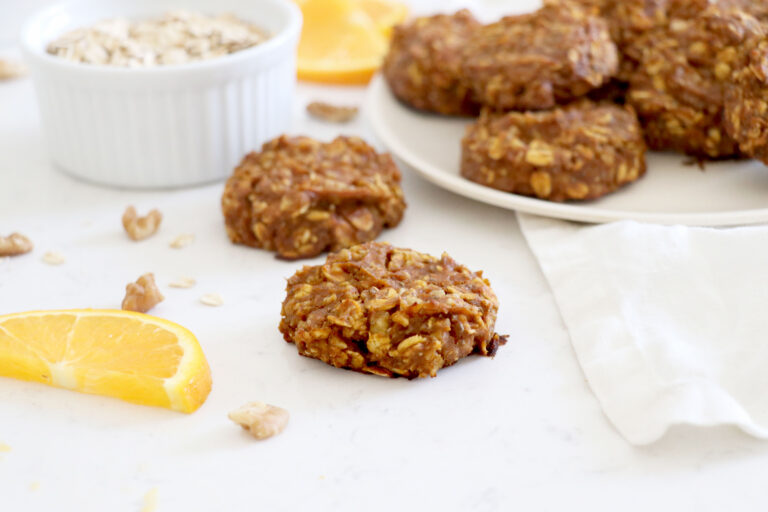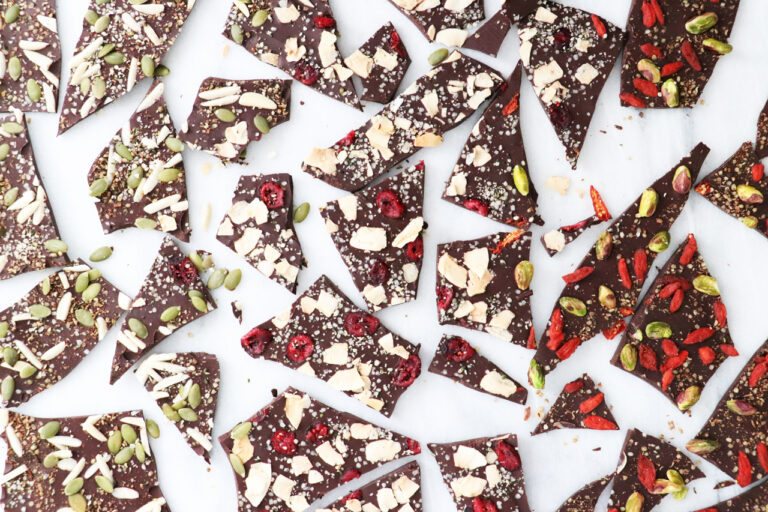The Best Diet To Reduce Inflammation
What Is Inflammation
Inflammation is part of the body’s natural healing process. It has a very important role to respond and help the body during times of injury, illness or exposure to harmful toxins. Our immune system creates an inflammatory response to defend against these harmful situations or substances and support the healing process.

What Causes Inflammation
Short-term inflammation plays an important role in protecting our body and helping our body heal. However, when inflammation continues, even when there is no longer the presence of an injury or illness, this can create a problem and negatively impact our health.
There are two different types of inflammation known as acute and chronic inflammation. Acute inflammation is short term, typically lasting for a few hours up to two weeks. Acute inflammation occurs due to injury, illness or exposure to harmful toxins.
Chronic inflammation is long-term and on-going inflammation. Chronic inflammation can be complicated and it’s important to find the root cause of what is prompting an on-going inflammatory response.
Chronic stress can be the result of on-going imbalance within the body, gut dysbiosis, illness, long-term exposure to chemicals, pollutants, environmental toxins or from the following:
- Poor Nutrition: A diet high in sugar, alcohol, refined carbohydrates and unhealthy fats
- Smoking Cigarettes
- Obesity: Being overnight
- Stress: Major life changes, daily on-going stress, rejection, loneliness, isolation, fear
- Poor Sleep: Lacking sufficient quantity or quality of sleep
It is important to find a way to manage and reduce chronic inflammation because it is the precursor to and increases the risk of many different diseases ranging from Diabetes, heart disease as well as cancer. Chronic inflammation can damage healthy cells, tissues and organs as well as damage the DNA in previously healthy cells.

Signs and Symptoms of Inflammation
There are 5 signs of acute, short-term, inflammation which include:
- Redness
- Heat
- Swelling
- Pain
- Loss of Function
A person may experience one or all five of these symptoms when experiencing acute inflammation. It is also possible to experience no symptoms, yet still have inflammation occurring.
Chronic inflammation symptoms can manifest if many different ways including the following:
- Abdominal pain
- Chest pain
- Fatigue
- Fever
- Joint pain
- Mouth sores
- Skin rash
- Stiffness
- Depresion
- Anxiety
- Constipation
- Diarrhea
- Acid Reflux
- Weight Loss
- Weight Gain
- Frequent Infections
Risk Factors Associated With Inflammation
Chronic inflammation is considered a major contributor to several diseases and can increase the risk of Diabetes, heart disease, cancer, rheumatoid arthritis, allergic asthma, chronic obstructive pulmonary disease (COPD), Alzheimer’s disease, chronic kidney disease (CKD) and inflammatory Bowel Disease (IBD).
How To Reduce Inflammation
Lifestyle, nutrition and wellness habits play a role in helping to reduce and manage inflammation within the body.
In addition to the above if you suspect that you are struggling with chronic inflammation it is best to work with a Medical Doctor, Naturopathic Doctor or Functional Medicine Doctor to help determine the root cause of the inflammation and provide a healing plan.
The Best Foods To Reduce Inflammation
Food as medicine is a philosophy where food and nutrition plays a key role in sustaining health, preventing disease and as a therapy for those with condition or situation responsive to changes in their diet. Certain foods have been scientifically proven to help reduce inflammation within the body and these foods include:
- Avocados
- Beans and Legumes
- Berries
- Broccoli
- Dark Chocolate and Cacao
- Cherries
- Extra Virgin Olive Oil
- Fatty Fish
- Grapes
- Green Tea
- Mushrooms
- Nuts and Seeds
- Peppers
- Tomatoes
- Turmeric
The Best Diet To Reduce Inflammation
In addition to adding these singular foods into your dietary routine, the best diet to help reduce inflammation is known as The Anti-Inflammatory Diet, also referred to as the Mediterranean Diet. This diet consists of eating minimally processed foods and focuses on real, whole foods rich in fiber, and phytonutrients such as fruits, vegetables, whole-grains, legumes, herbs and spices and small amounts of quality animal protein such as fish.

The Best Herbs and Spices To Reduce Inflammation
There are also a number of herbs, spices and botanicals that can help to reduce and manage inflammation.
Turmeric: Turmeric is a spice that has long been known to have medicinal properties such as helping to reduce inflammation due to a compound known as curcumin. Adding turmeric to soups, smoothies, a golden milk latte or a juice, is a great way to benefit from turmeric.
Ginger: Ginger has many medicinal benefits as well from helping to reduce digestive distress, nausea, pain and inflammation. Ginger contains a number of antioxidants that may help reduce inflammation. In particular, the gingerols, shogaols, and diarylheptanoids in ginger may help to reduce symptoms associated with inflammation. Adding fresh ginger to stir-fries, tea, sauces, soups, smoothies or juice is a wonderful way to benefit from ginger!
Hemp Seeds: Hemp seeds, also referred to as hemp hearts, contain omega-3 fatty acids which are known to support brain health, heart health and provide anti-inflammatory benefits. Hemp seeds also contain omega-6 fatty acids, one known as gamma-linolenic acid (GLA) that has b gamma-linolenic acid (GLA,) which may have anti-inflammatory effects, support hormonal health and help reduce pain associated with PMS and menopause.
Nettles: Nettles are a flowering plant that support skin and bone health. Nettles also provide antihistamine, anti-inflammatory and antibacterial properties. Nettles are best enjoyed in tea, tinctures, a supplement or juice!
Slippery Elm: Slippery elms are tall flowering trees with soft inner bark, which is the portion of the tree used in herbal medicine. Consuming slippery elm internally may help to relieve or suppress a cough, store throats or to soothe the digestive tract and soothe an upset stomach. Slippery elm has anti-inflammatory benefits and has also been associated with helping to treat symptoms associated with inflammatory bowel diseases such as irritable bowel syndrome (IBS), Crohn’s disease, ulcerative colitis. Externally, slippery elm has been used in healing salves for wounds, burns, skin inflammation and more.
Flaxseeds: Flaxseeds are a seed rich in Omega-3 fatty acids as well as flavonoids which provide anti-inflammatory benefits. A great way to enjoy flaxseeds is to eat them ground (not whole) and consume in a smoothie, baked treats or on top of oatmeal!
Cacao: Cacao is rich in polyphenols, which provide a variety of health benefits including helping to reduce inflammation! Cacao is great for making a cup of cocoa but also in smoothies, baked treats, homemade snack bites or bars or even sauces to make savory mole sauce!

Organic Pharmer – Best Organic Anti-Inflammatory Nutrition Program
Including these foods and herbs into your meals and snacks regularly is key for helping to reduce and manage inflammation. A great way to consume the herbal list above is with Organic Pharmer’s Anti-Inflammatory Program! Organic Pharmer is a great resource for individuals whether you are in need of a therapeutic program or you are looking to add healthier juices, smoothies and meals throughout your week. All Organic Pharmer products are 100% Organic, plant-based and have a purposeful and functional blend of medicinal herbs. Each product is made with the highest integrity ingredients and are free of gluten, dairy, corn, soy & egg and all inflammatory oils. If you’re looking for a delivery of juices, soups or wholesome snacks to kick-start or continue on with your anti-inflammatory journey, Organic Pharmer is a great choice.
Enjoy 20% off all Organic Pharmer products with the code: HealthyGroceryGirl


For more nourishing, healthy anti-inflammatory recipes to make at home explore the HGG blog!
Disclosure: Thank you to Organic Pharmer for sponsoring this educational post. I only partner with brands I personally love, recommend and believe are quality products helping people to live a healthier life.
Sources:
https://www.ncbi.nlm.nih.gov/pmc/articles/PMC5664031/
https://www.ncbi.nlm.nih.gov/books/NBK493173/
https://www.ncbi.nlm.nih.gov/pmc/articles/PMC9253158/
https://pubmed.ncbi.nlm.nih.gov/21241460/
https://www.ncbi.nlm.nih.gov/pmc/articles/PMC9253158/https://www.liebertpub.com/doi/abs/10.1089/acm.2009.0090




